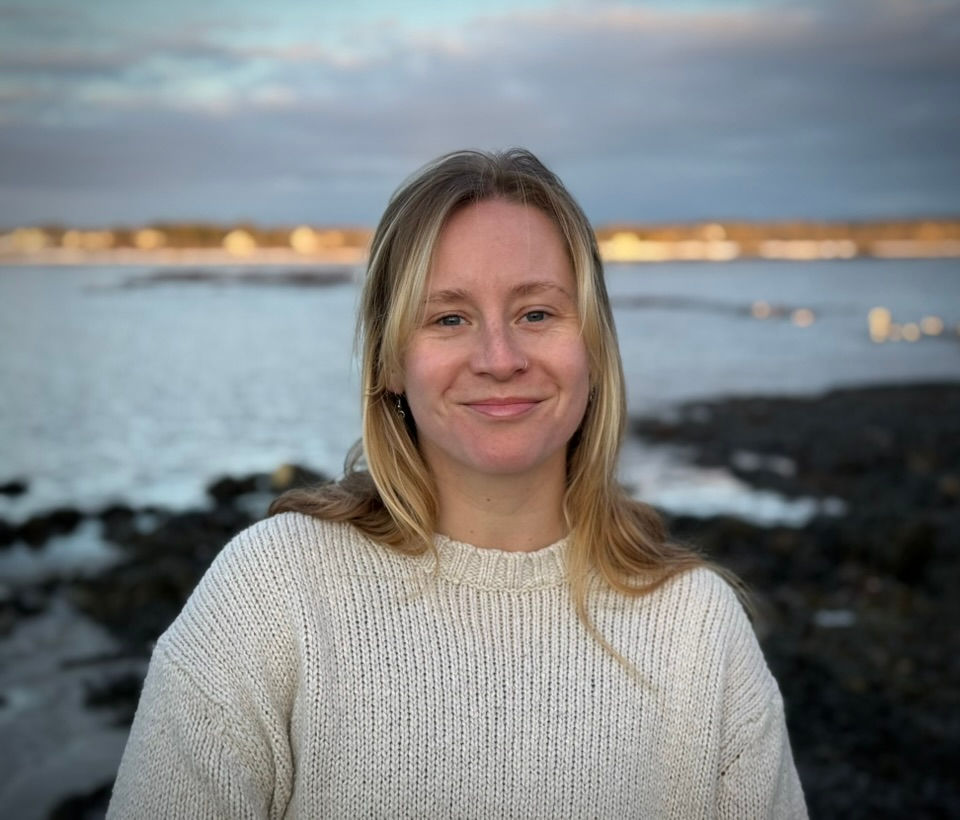Five Reasons to be Optimistic for Fisheries: Earth Day 2025
- Ben Martens

- Apr 22, 2025
- 4 min read
On this Earth Day, let’s talk about oceans.

Often, we get stuck in a negative loop about what has been lost, what is at risk, or what has changed for the worse. But lost in these stories is the opportunity, hope, and optimism that I feel every day in the work we do to build a brighter future for Maine's fishing communities.
When I was in college, I had an amazing professor, DeWitt John, who, in a political science/environmental studies class, said, “If you want to get involved in an environmental issue that you can fix within your lifetime, do fisheries.” That idea stuck in my brain like a baited hook. Things are far more complicated than what an 18-year-old kid thought, but the hope and optimism sparked by that class have not faded.
Recognizing that there are problems and much work left for us to do, let me outline my top five reasons for optimism and hope on Earth Day 2025 and why it is worth it to do the work in front of us.
Optimism #1: Despite being one of the oldest industries in the United States, there are still fish in the oceans. I cannot stress enough how amazing this simple fact is. The passenger pigeon was estimated to be the most numerous bird in the world in the early 1800s, yet it was extinct a century later. Apparently, they tasted good, and their feathers looked great in hats. No one today could tell you how they taste, though, because they are gone. The cod population is not robust, but we still have cod. They have been targeted by commercial fishermen for centuries, and still, the species persists. Other species of fish are very abundant, beyond rebuilding targets set by NOAA, despite being absolutely delicious. This is the foundation of our hope: fish are resilient, they repopulate quickly, and we still have them!
Optimism #2: We are still just getting started in figuring out fisheries management. Prior to 1976, fisheries management was a decentralized, state-led process with very limited rules and regulations. Foreign boats were allowed into US waters with very little care for long-term stewardship. In 1976, the Magnuson-Stevens Fishery Conservation and Management Act (MSA) was passed, which expelled the foreign boats. However, it wasn’t until 1996 that MSA was updated to prevent overfishing and set rebuilding targets, and it wasn’t until 2006 that MSA hardwired in a focus on science, accountability, and annual catch limits into the management process. One could argue about the effectiveness of how all these updates were implemented, but we are still in the early stages of fisheries management. The US has some of the best management in the world, but it is still evolving. There is room for innovation and improvement, especially with more fishermen involved in science and management.
Optimism #3: This one is simple: people want to eat good food. They want to eat food that tastes good, food that's good for them, and food that is good for the environment. Seafood, especially local seafood, represents all of these things. There is growing demand for seafood around the world, and we just need to figure out how to tap into that demand to unlock the potential that our oceans represent for local coastal communities.
Optimism #4: There's a growing consensus, at least here in New England, that there are problems with our data streams when it comes to our fisheries management. While I admit this sounds negative, one of the first steps toward solving a problem is finding shared consensus on defining what that problem is. For many years, fishermen have been saying that there are problems with our surveys and that the data and reality of what they are seeing on the water do not match what our scientists are reporting in their models. I don't know the answer to solving this problem, but knowing that managers, scientists, and fishermen becoming aligned around identifying this as a problem is an amazing starting point. Now we just need to agree on a solution...
Optimism #5: We have AMAZING fishermen here in Maine. I have the profound pleasure of working with fishing organizations around the country on different issues, and one of the things we often hear about is a lack of a next generation of fishermen. Here in Maine, we have fishermen, we have good fishermen, and while the fleet is aging, we have a next generation of fishermen coming who are innovative, open-minded, and who care deeply about not only the heritage they come from but also building a bridge to the future. We cannot and should not underestimate the value of human capital, and in Maine, we have the people.
For every one of these pieces of optimism, there are threats and ways that we could squander the opportunities our future could hold. But I am the type of person who doesn’t just see a glass that is half full; I go looking for the pitcher to bring to the table and fill it to the brim. This Earth Day, here's your reminder that the earth is mostly water and that our oceans represent amazing opportunities, especially for a place like Maine.
Find your hope, bring your optimism, and join us in building the future we deserve.
Together, we persevere.





Comments